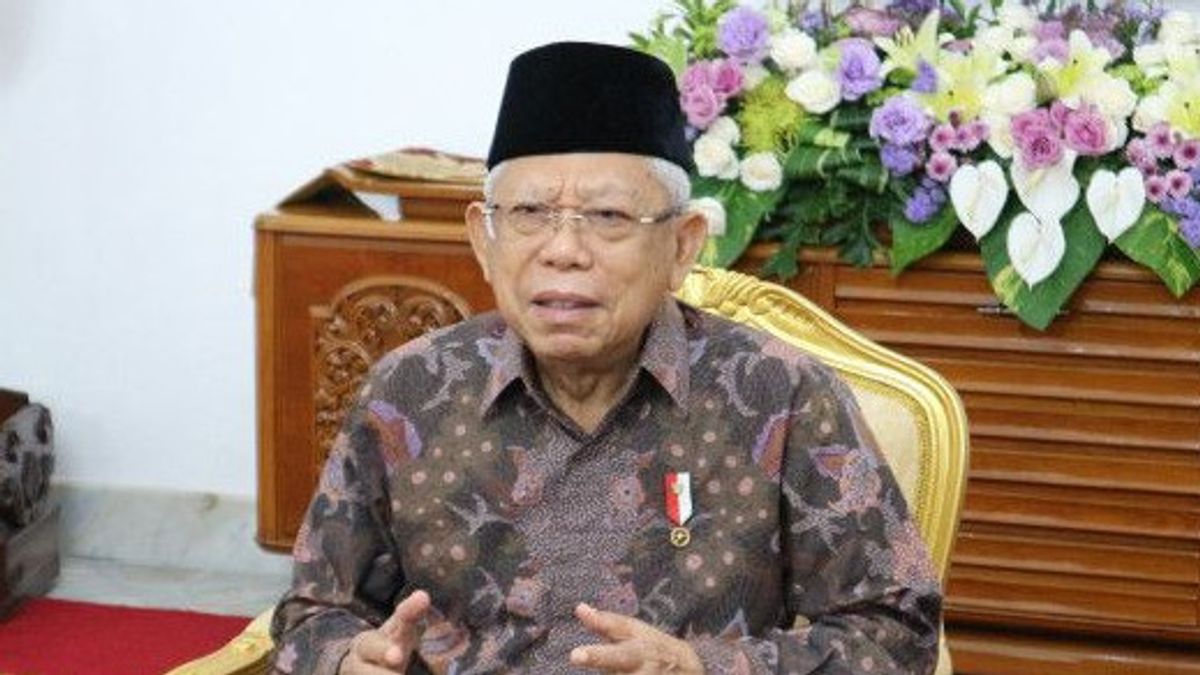JAKARTA - The government is committed to eradicating corruption even though Indonesia's Corruption Perception Index (CPI) in 2022 shows a decrease of 4 points.
"It's normal, sometimes it goes down, goes up; but what is clear is that the Government is committed to eradicating corruption," said Vice President Ma'ruf Amin at the Yogyakarta Presidential Palace, Saturday, February 4.
The government will review the cause of the decrease in the index.
"We will certainly examine the decline in perceptions of corruption, we will examine it, yes. The KPK itself uses three approaches, namely education, then prevention, and prosecution. This is simultaneously done; because of that, where is the decline?" said the vice president as quoted by Antara.
The government is also making various prevention efforts through public services, he said, such as establishing a Public Service Mall (MPP) to serve the community quickly.
"Through digital services, without meeting in person, so that it is fast, easy, and there is no gap in committing extortion. Then, we also create a kind of zone for integrity in the bureaucracy, then a region free of corruption. So, it's all in order to minimize corruption," he explained.
According to him, the Government will conduct discussions to find out the main components that reduce Indonesia's GPA in 2022.
"(Flowest) On which side? So, we are determined to minimize corruption. We hope that the action will be smaller because it has been (improved) upstream. Upstream is from more obedient education and prevention," said Vice President Ma'ruf Amin.
Previously, based on Transparency International Indonesia (TII) data, Corruption Perception Index or Indonesia's GPA in 2022 dropped 4 points to 34 from the previous 38 in 2021, or was in the 110th position out of 180 countries surveyed. In 2021, Indonesia's IPK score is 38 with a rank of 96.
The GPA refers to eight data sources and expert assessments to measure corruption in the public sector in 180 countries and territories. A score of 0 means very corrupt and a score of 100 means very clean.
In ASEAN, Singapore became the country that was considered least corrupt with a score of 83, followed by Malaysia with a score of 47, Timor Leste got a score of 42, Vietnam won a score of 42, Thailand got a score of 36, Indonesia with a score of 34, the Philippines won a score of 33, Laos with a score of 31, Cambodia reached a score of 24, and Myanmar got a score of 23.
While at the global level, Denmark was ranked first with a GPA of 90, followed by Finland and New Zealand with a score of 87 each, Norway got a score of 84, Singapore and Sweden with a score of 83 each, and Switzerland got a score of 82.
In the lowest position, Somalia got a score of 12, while Syria and South Sudan each with a score of 13 and Venezuela to a score of 14.
Indonesia's IPK is the same as Bosnian Herzegovina, Gambia, Malawi, Nepal, and Sierra Leone. Indonesia's GPA is even lower than Colombia (39), Lesotho (37), Kazakhstan (36), and Sri Langka (36).
Deputy TII Wawan Suyatmiko said that based on analysis, economic indicators experienced a big challenge between the company's professionalism in implementing an anti-corruption system and state policies that relaxed the ease of investing.
"A developing country wants to choose what kind of investors from a country? Is it from a country with high anti-corruption standards or what is important is road economic growth?" Wawan said.
Another analysis is that in terms of political indicators there are no significant changes because political corruption is still widespread. Furthermore, law enforcement indicators show that anti-corruption policies have not been proven to be effective in preventing and eradicating corruption.
The English, Chinese, Japanese, Arabic, and French versions are automatically generated by the AI. So there may still be inaccuracies in translating, please always see Indonesian as our main language. (system supported by DigitalSiber.id)













